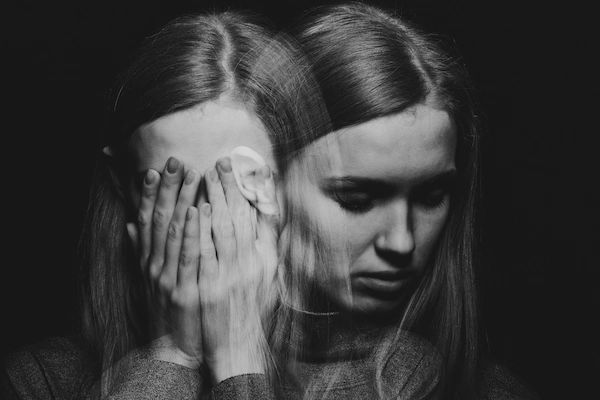Guide to Complete Guide To Bipolar Disorder
Get a complete guide to bipolar disorder, including its types, causes, symptoms, diagnosis, and treatment options. Learn how to manage mood swings and improve quality of life with proper care.

Written by Dr. Shaik Abdul Kalam
Reviewed by Dr. J T Hema Pratima MBBS, Fellowship in Diabetes Mellitus
Last updated on 13th Jan, 2026

Bipolar disorder is a complex and often misunderstood mental health condition that affects millions of people worldwide. Far more than simple mood swings, it involves intense shifts in energy, activity levels, and the ability to carry out day-to-day tasks. If you or someone you love is navigating this challenging landscape, you’re likely seeking clear, reliable information. This complete guide to bipolar disorder is designed to demystify the condition, offering a comprehensive overview of its types, symptoms, causes, and most importantly, the pathways to effective management and recovery. We’ll move beyond the basics to explore practical strategies for living well and supporting others. Understanding is the first step toward empowerment, and this guide aims to provide just that.
What is Bipolar Disorder? More Than Just Mood Swings
Bipolar disorder, formerly known as manic depression, is a chronic mental health condition characterized by extreme fluctuations in mood. These are not the typical ups and downs everyone experiences; they are severe shifts that can impact sleep, energy, judgment, behavior, and the ability to think clearly. These periods of distinct, intense emotional states are called "mood episodes," which are classified as manic, hypomanic, or depressive.
Consult a Top Neurologist
The Different Types of Bipolar Disorder
Not all bipolar disorder is the same. Diagnosis depends on the pattern and severity of the mood episodes.
Bipolar I Disorder
This is defined by at least one manic episode that lasts for at least one week or is so severe that it requires immediate hospital care. Major depressive episodes usually occur as well, but they are not required for the diagnosis. The manic episodes in Bipolar I are often severe and disruptive.
Bipolar II Disorder
This involves a pattern of major depressive episodes and hypomanic episodes, but not the full-blown manic episodes typical of Bipolar I. While the "highs" (hypomania) may feel less extreme, the depressive episodes can be frequent and debilitating, making an accurate difference between bipolar 1 and 2 critical for treatment.
Cyclothymic Disorder (Cyclothymia)
A milder but chronic form of bipolar disorder. It involves numerous periods of hypomanic symptoms and depressive symptoms lasting for at least two years (one year in children and adolescents). The symptoms are less severe than full hypomania or major depression but can still impact one's life.
Other Specified and Unspecified Bipolar Disorders
This category is for individuals who exhibit clear bipolar patterns that do not fully meet the criteria for the three types above. It acknowledges that the experience of bipolar is a spectrum.
Recognizing the Symptoms: The Highs and Lows
Identifying the signs of a manic episode and its counterparts is key to understanding the disorder.
Manic Episode Symptoms
A manic episode is a period of abnormally elevated, expansive, or irritable mood and abnormally increased activity or energy that lasts most of the day, nearly every day, for at least a week.
Key Signs of a Manic State: Feeling extremely “up,” “high,” or elated; having racing thoughts and talking very fast; feeling jumpy or wired; needing less sleep without feeling tired; having an inflated sense of self-confidence (grandiosity); engaging in impulsive, high-risk behaviors (e.g., reckless spending, unsafe sexual practices).
Hypomanic Episode Symptoms
Hypomania is a less severe form of mania. The symptoms are similar but shorter in duration (at least four consecutive days) and are not severe enough to cause major impairment in social or occupational functioning or to necessitate hospitalization. To others, it may simply seem like a period of high productivity or unusual cheerfulness.
Major Depressive Episode Symptoms
This is a period of intense sadness or hopelessness that lasts at least two weeks.
Key Signs of a Depressive State: Feeling very down, sad, or empty; loss of interest in activities once enjoyed; significant changes in appetite or weight (increase or decrease); sleeping too much or too little; feeling fatigued or without energy; feelings of worthlessness or excessive guilt; difficulty concentrating or making decisions; thoughts of death or suicide.
What Causes Bipolar Disorder? The Complex Interplay
There is no single cause of bipolar disorder. Research suggests it’s a result of a combination of factors.
Genetic and Biological Factors
Bipolar disorder often runs in families. People with a parent or sibling with the condition have a higher risk of developing it themselves. Research points to differences in the brain's structure and function, including imbalances in neurotransmitters like norepinephrine and serotonin.
Environmental Triggers and Risk Factors
Genetics load the gun, but the environment often pulls the trigger. Stressful life events, such as a death in the family, financial problems, or a traumatic experience, can trigger a first episode in a predisposed individual. Substance abuse can also exacerbate or trigger symptoms.
How is Bipolar Disorder Diagnosed?
Receiving a correct diagnosis is the cornerstone of effective management.
The Diagnostic Process and Criteria (DSM-5)
There is no single blood test or brain scan for bipolar disorder. A diagnosis is made by a qualified mental health professional through a comprehensive psychiatric assessment. They use the Diagnostic and Statistical Manual of Mental Disorders (DSM-5) criteria, which outline the specific symptoms required for each type of mood episode. They will take a detailed history of your mood swings, energy levels, sleep patterns, and behavior.
The Importance of Differential Diagnosis
This process is crucial because bipolar disorder symptoms can overlap with other conditions like major depression, ADHD, or borderline personality disorder. Misdiagnosis can lead to ineffective or even harmful treatments (e.g., antidepressants alone can sometimes trigger mania in someone with undiagnosed bipolar disorder). If you suspect you or a loved one may be experiencing these cycles, consult a psychiatrist online with Apollo24|7 for a professional evaluation.
Effective Treatment Options for Bipolar Disorder
Bipolar disorder is a lifelong condition, but it is highly treatable. A combination of approaches is most effective.
Medication: Mood Stabilizers, Antipsychotics, and Antidepressants
Medication is typically the foundation of treatment.
Mood Stabilizers (e.g., Lithium, Valproate) are the cornerstone for controlling manic and hypomanic episodes.
Atypical Antipsychotics (e.g., Olanzapine, Quetiapine) can help with both manic and depressive symptoms.
Antidepressants may be used cautiously alongside a mood stabilizer to treat depression, but are rarely used alone.
Psychotherapy: CBT, IPSRT, and Family-Focused Therapy
Therapy provides essential coping skills.
Cognitive Behavioral Therapy (CBT): Helps identify and change negative thought and behavior patterns.
Interpersonal and Social Rhythm Therapy (IPSRT): Focuses on stabilizing daily rhythms (sleep, meals, exercise) to help regulate mood.
Family-Focused Therapy: Involves family members to improve communication and support systems.
Lifestyle Modifications and Self-Management Strategies
Consistent routine is powerful. Prioritizing regular sleep, a balanced diet, and consistent exercise can significantly help manage mood cycling. Avoiding alcohol and recreational drugs is also critical, as they can interfere with medications and trigger episodes.
Living with Bipolar Disorder: Strategies for Thriving
A diagnosis is not an end; it’s the beginning of a managed life.
Building a Support System
Connecting with understanding friends, family, and support groups reduces isolation and provides a safety net. Being open with your therapist and doctor is also part of this system.
Recognizing Your Personal Early Warning Signs
Most people can identify subtle early signs of an impending episode (e.g., needing less sleep, feeling unusually irritable). Learning to spot these red flags allows for early intervention with a healthcare provider, potentially preventing a full-blown episode.
Developing a Routine and Crisis Plan
A structured daily schedule for sleep, meals, and activities promotes stability. A wellness or crisis plan, created with a doctor, outlines what to do and who to contact if symptoms worsen.
How to Support a Loved One with Bipolar Disorder
Supporting someone with bipolar disorder requires patience, education, and empathy.
Educate Yourself: Understanding the condition is the first step.
Communicate Openly: Talk openly about their experiences without judgment.
Be Patient: Recovery is a process with ups and downs.
Encourage and Support Treatment: Gently encourage them to stick with their treatment plan and offer to accompany them to appointments.
Take Care of Yourself: Supporting someone can be draining. Ensure you also have your own support network.
Conclusion
Navigating the complexities of bipolar disorder is a journey, but it is one that does not have to be taken alone. This complete guide has outlined the fundamental aspects of the condition—from its defining symptoms and types to the multifaceted approach required for effective treatment. The most important takeaway is that bipolar disorder is a manageable condition. With the right diagnosis, a tailored treatment plan, strong support systems, and a commitment to self-care, individuals living with bipolar disorder can lead full, productive, and stable lives. If the information here resonates with you, it is not a substitute for professional medical advice. If your condition does not improve after trying these methods, or if you're experiencing severe symptoms, book a consultation with a psychiatrist on Apollo24|7 to create a personalized path to wellness.
Consult a Top Neurologist
Consult a Top Neurologist

Dr Debnath Dwaipayan
Neurosurgeon
9 Years • MBBS, MS(Gen. Surgery), DrNB (Neurosurgery)
Delhi
Apollo Hospitals Indraprastha, Delhi

Dr. Uddalak Chakraborty
Neurologist
8 Years • MBBS,MD(GENL. MED.),DM(NEUROLOGY)
Kolkata
VDC Clinic, Kolkata
(25+ Patients)

Dr. Uddalak Chakraborty
Neurologist
8 Years • MBBS, MD(GENL.MED.),DM(NEUROLOGY)
Kolkata
MCR SUPER SPECIALITY POLY CLINIC & PATHOLOGY, Kolkata

Dr. Ganeshgouda Majigoudra
Neurologist
10 Years • MBBS, MD ( GENERAL MEDICINE) DM (NEUROLOGY)
Bengaluru
Apollo Clinic, JP nagar, Bengaluru

Dr. Avinash Gupta
Neurologist
12 Years • MBBS, DNB - Neurology
Bilaspur
Apollo Hospitals Seepat Road, Bilaspur
(150+ Patients)
More articles from Bipolar Disorder
Frequently Asked Questions
1. Can bipolar disorder be cured?
There is currently no known cure for bipolar disorder, but it is a highly treatable condition. With long-term, continuous treatment, people can effectively manage their symptoms and live healthy, fulfilling lives. Treatment focuses on managing episodes and preventing relapse.
2. What’s the difference between bipolar disorder and borderline personality disorder (BPD)?
While both involve mood instability, the patterns differ. Bipolar mood episodes are distinct periods (days to weeks) of sustained mania or depression. BPD involves rapid, sometimes hourly, shifts in mood, self-image, and relationships, often triggered by interpersonal conflicts.
3. Are there natural remedies for bipolar disorder?
While lifestyle changes like regular sleep, exercise, and a healthy diet are crucial complements to treatment, they are not substitutes for medication and therapy. Some supplements (like Omega-3s) show promise in studies but must only be used under a doctor's supervision to avoid interactions with prescribed medications.
4. How does bipolar disorder affect relationships?
The symptoms of bipolar disorder can strain relationships. Mania can lead to impulsive and hurtful behavior, while depression can cause withdrawal and irritability. Open communication, couples or family therapy, and a strong support network are vital for maintaining healthy relationships.
5. Is bipolar disorder genetic?
There is a strong genetic component. Having a first-degree relative (parent or sibling) with bipolar disorder increases your risk. However, it is not deterministic; many people with a family history never develop the condition, and some with no family history do.
